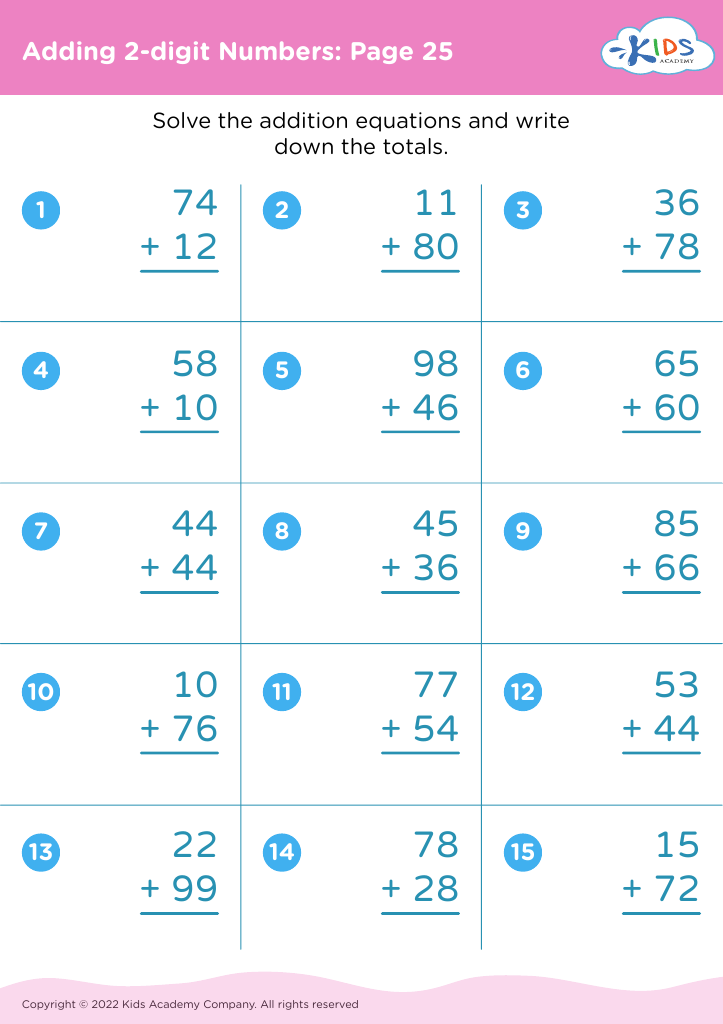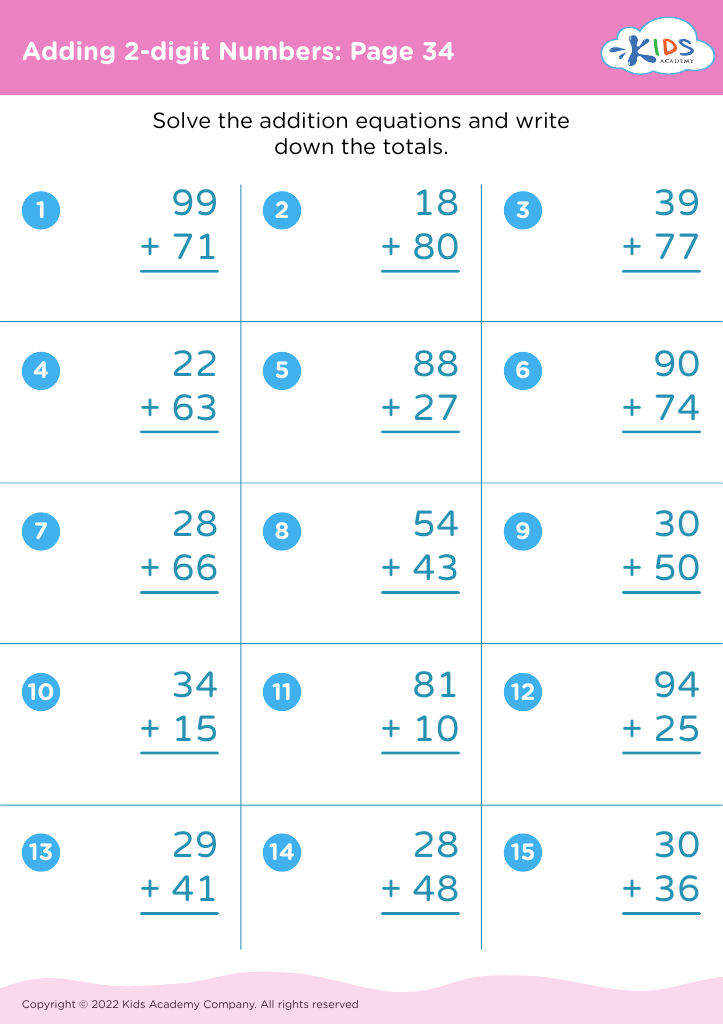Develop logical thinking Adding 2-digit Numbers Worksheets for Ages 4-7
3 filtered results
-
From - To
Unlock your child's logical thinking potential with our "Develop Logical Thinking: Adding 2-Digit Numbers Worksheets" tailored for ages 4-7. These engaging worksheets make learning math fun and effective, helping young learners grasp the concept of adding two-digit numbers. Each worksheet is carefully designed to challenge growing minds while reinforcing fundamental math skills. With colorful visuals and interactive activities, children feel excited and encouraged to practice and improve. Our worksheets foster problem-solving abilities and critical thinking, laying a solid foundation for future math success. Free downloadable, printable resources ensure hands-on learning anytime, anywhere. Empower your child today!
Introducing logical thinking by adding 2-digit numbers for children aged 4-7 is a cornerstone for cognitive and academic growth. At this formative stage, developing these skills prepares young minds for more advanced mathematical concepts and problem-solving techniques. Logical thinking fosters critical reasoning, which is applicable not only in math but across all subjects and real-life situations. By understanding operations with 2-digit numbers, children enhance their number sense and grasp the principles of addition, building a strong mathematical foundation.
Moreover, mastering these skills early boosts confidence and encourages a positive attitude toward learning, reducing math anxiety frequently observed as children progress through school. Logical thinking also nurtures patience and persistence, as youngsters learn that solutions require methodical and step-by-step approaches.
Incorporating such exercises in educational routines aids parents and teachers in identifying early any potential learning difficulties, allowing for timely intervention and support. This proactive approach ensures tailored instruction that meets each child’s unique needs, promoting equitable education. Therefore, focusing on this vital skill at an early age ensures children are equipped with essential tools for future academic success and personal development. Both parents and teachers play pivotal roles in facilitating this pivotal learning process, making it imperative to prioritize.



















